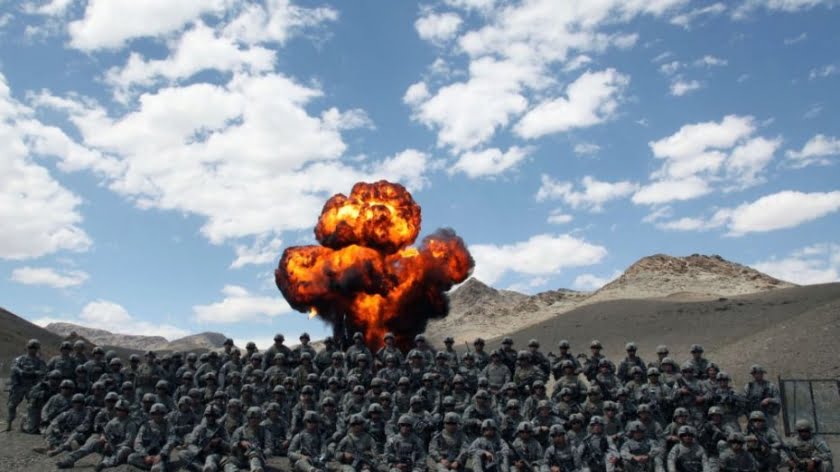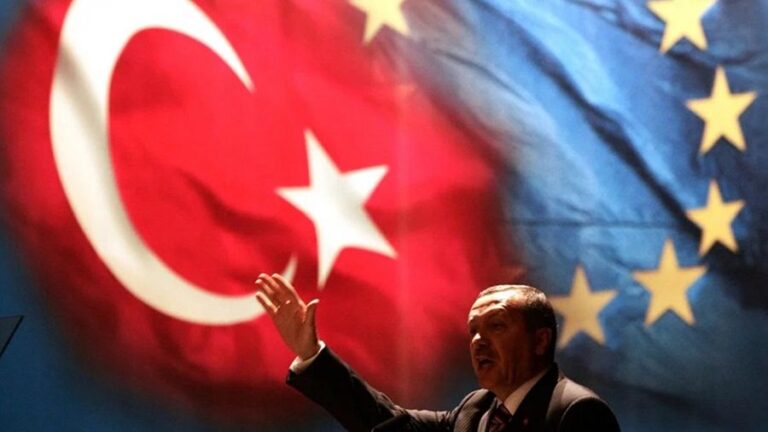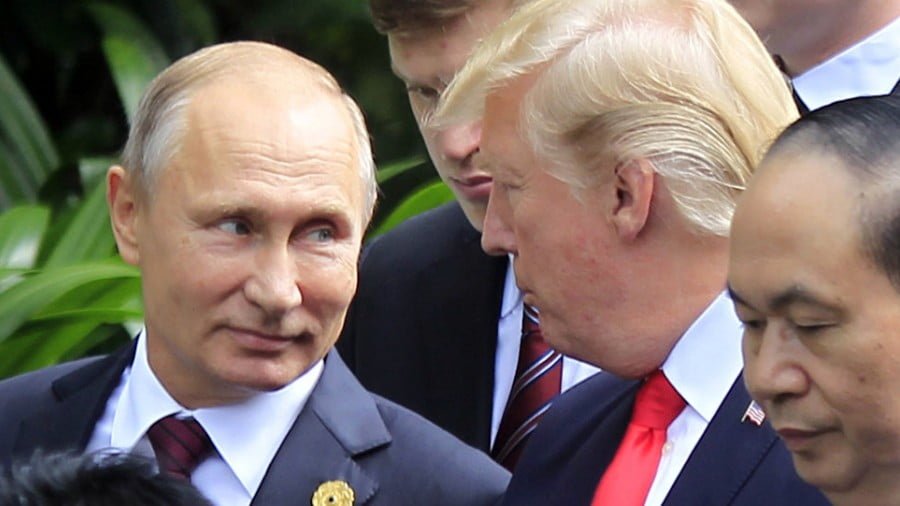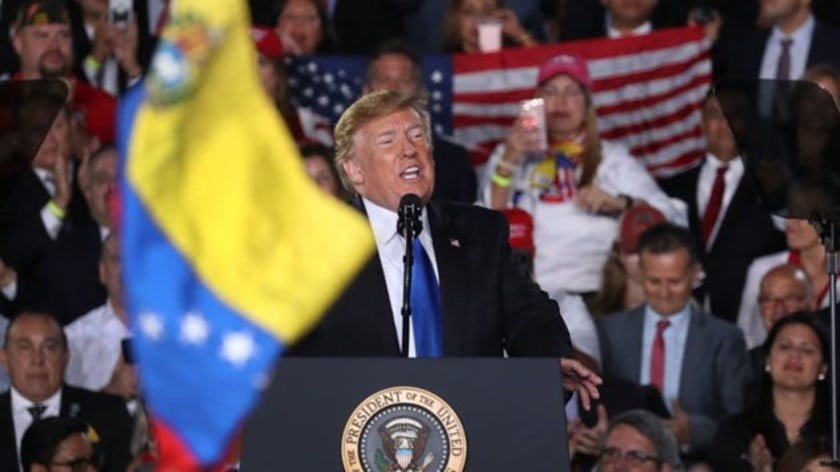Iranian Foreign Policy in Iraq Following Defeat of ISIS
With the recent advances made by the Syrian Arab Army together with the Russian Air Forces in Syria against ISIS, coupled with the continuous pushing back of the same group in Iraq by the Popular Mobilization Units (PMUs), the end of the upstart caliphate pretending to the title of ‘Islamic State’ is very close at hand. Essential to the turning of the tide against the terrorist group in both countries has been the Islamic Republic of Iran, whose aid to the Iraq occurred most visibly in the creation and direction of Shia militias, whose work provided much-needed aid and spirit to the efforts of the regular armed forces. With the war all but won, it remains to be seen what direction the Persian state will take in its relations with its coreligionist neighbor, which until the fall of Saddam Hussein in 2003 was placed at direct odds to both its spirit and its regional ambitions.
The speedy US victory against Iraq in 2003 and the de-Baathification of the country was greeted with unrestrained cheers by both sides of the Western liberal establishment, but the applause died down as the proofs of Hussein’s alleged anti-American and terrorist plans evaporated upon close inspection. While the historical record could be rectified by the American congressional 9/11 Commission, turning back the clock in Iraq could not be done, and while the enormous vacuum created by the invasion meant an opening for Western NGOs and corporations, it also opened the door to increased influence of Iran.
In Iran – and in Iraq – the US invasion was viewed with both anger and rejoicing. For Iran specifically, in the short term, there was anger about the invasion because it meant the introduction of the armed forces of a hostile state right next to their country; it also extended the influence of the Zionist regime to Baghdad which could have meant the creation of a state-sized leveraging tool of the Zionist-American alliance. However, some took a longer view of the situation, that the US did what their own forces had been unable to do by repeated attempts at invasion during the Iran-Iraq War: to unseat Saddam Hussein and disestablish his secular Arab nationalist Ba’athist regime. From very early on in the Iranian Revolution, Ayatollah Khomeini had publicly called on the Iraqis to rise up and overthrow their leader, and particularly made overtures to the Kurds to rebel against Baghdad, thus weakening the state as a whole and making it that much more susceptible to an Iranian-led establishment of a like regime. With the Ba’athist regime out of the way and Saddam dead, more than half of the effort had been done gratis, with the Iranians looking on as would spectators at a football match. Despite the best efforts of the administrations of George W. Bush and Barrack Obama, Iran has continued to fill that vacuum with increasing success, due to the twin American sins of lack of resolve to finish a job and a simplicity and ignorance when it comes to foreign cultures.
Iran’s influence in Iraq is now seemingly at its height due to the war on ISIS and its essential help to the Iraqi state in creating, supplying, training and directing Shiite militias. In addition to this military influence, Iran shares a religious character with a large majority of the Iraqis. Lastly, there is an economic connection due to the juxtaposition of the two countries and the great potential for cooperation with the petroleum sector due to contiguous territories along the Shatt al-Arab and the Persian Gulf.
Iran without a doubt wishes to continue this high level of influence in Iraq, and because of these links between the two countries, it is very well suited to do so. With the end of the war serving as a breakpoint, it is very apropos to discuss what Iranian foreign policy will be towards its neighbor upon the cessation of hostilities.
What guides Iranian policy? Who determines it? What is its motive? According to the Iranian Constitution, the purpose of the state is to concretize the Revolution at home in Iran and to further its spread throughout the world. To note its language: “In particular, in the development of international relations, the Constitution will strive with other Islamic and popular movements to prepare the way for the formation of a single world community (in accordance with the Koranic verse “This your community is a single community, and I am your Lord, so worship Me” [Koran 21:92]), and to assure the continuation of the struggle for the liberation of all deprived and oppressed peoples in the world” (Preamble). The personal doctrines of the Ayatollah Khomeini directed the adoption of this purpose, and the Ayatollah Khamenei continues it.
The goal of Iranian foreign policy having been established, the question may be asked, who determines its precise working? The main policy-making body for the Islamic Republic in areas of national and regional defense is the Supreme National Security Committee, and since its relations with Iraq are intricately tied to its national defense, it cannot be doubted that this body determines foreign policy towards that country. Of the thirteen members, six owe their membership either directly or indirectly to the Supreme Leader; five are presidential appointees, and the remaining two are President Hassan Rouhani himself and the Speaker of the Majlis, Ali Larijani. As any governmental policy must have the approval of the Supreme Leader, whose interests are forwarded by his two personal representatives, the policy formulations of the Council will follow the direction of what Ayatollah Khamenei believes to be in the best interest of the Islamic Republic. Since Ali Khamenei is a devoted disciple of Ayatollah Khomeini, we can generally say that the foreign policy towards Iraq will continue to have a confessional character of friendship based upon the shared religion of Shia Islam.
The fall of the Ba’athist regime was the biggest regional shift in the balance of power since the end of World War II, and it has been favorable to Iran. As long as Hussein remained in power and the secular Arab nationalist ideology officially guided the country, Iran had a potential enemy at its gates. Now, with the absolute majority which their Shia co-religionists make in the country properly expressed through popular elections to the national assembly, the Iranians have found a government led by the Shia with a legitimacy admitted by the very countries of the West who now look on in dismay at the friendly relations between the two neighbors. The foreign policy of Iran towards Iraq ever since the fall of Saddam has been to strengthen this newly-found friendship and to make Shia-led Iraq a solid member of the ‘Axis of Resistance’ to the Zionist regime and its allies, the Americans and the British.
How precisely has this be done? The reason for the close relations for the past three years has been the control by ISIS of large swaths of the countryside and of its capture and occupation of Mosul. The Iranian-guided popular militias have been instrumental in pushing ISIS out of Mosul and in pushing them to the Syrian border. It has been clearly stated by both governments that military cooperation against extremism will continue after the fall of ISIS, but the particular question of the purpose of the militias within Iraqi society approaches to the fore the closer ISIS’ doom becomes. How will the Iraqi and Iranian governments justify the continued existence of the militias? Will the Sunni minority allow this? If the two governments can make the case for their continuing usefulness in the fight against residual extremism, then it is arguable their corps will remain in place, albeit with less numbers.
There have also been some instances of personal interaction between public officials of both countries which signal a continuing closeness of relations. On July 23, Iraqi Defense Minister Erfan al-Hiyali visited Tehran and met with Ali Larijani; according to IRNA, he publicly thanked Iran for its “brotherly and cordial cooperation” throughout the last three years and called on the countries to reinforce their ties. He and Larijani then signed an agreement to increase military cooperation and to continue to fight terrorism and extremism. Also, according to INRA, Iraqi Foreign Minister Ibrahim al-Ja’afari expressed to Iranian Deputy Foreign Minister Jaberi Ansari at a meeting in Baghdad that same day that, “If it were not for Iran, Iraq would have been lost.” Mr. Ansari also exchanged a friendly symbolic meeting with Speaker of the Iraqi Council of Representatives Salim al-Jabouri, who is a member of the Muttahidoon Party and a Sunni.
On July 30, Iranian Ambassador to Iraq Iraj Masjedi met with an adviser to Iraqi Foreign Minister Ihsan al-Awadi and Former Iraqi Oil Minister Ibrahim Mohammad Bahr al-Ulloum to promote relations in all areas, especially economic ones. He noted that Iran is fully prepared to aid Iraq in rebuilding its infrastructure and economy.
On July 31, Iraqi Oil Minister Jabbar Ali Hussein Al-Luiebi and Iranian Minister of Petroleum Bijan Zangeneh signed an agreement to construct an oil pipeline to carry Iraqi crude from the fields around Kirkuk to the Persian Gulf via Iran. This would obviate the need for Iraqi to move the oil through Kurdistan to the Mediterranean via Turkey.
On August 5, Iraqi President Fuad Masum, the Chairman of the Islamic Supreme Council of Iraq Ammar Hakim, and Speaker al-Jabouri assisted at the swearing-in ceremony of Hassan Rouhani.
Lastly, the graduation of 130 students from Ferdowsi University at the end of July drew a favorable comment from Iranian cleric Hojatoleslam Mehdi Salehi on the continuing closeness of the two countries at all levels.
One topic which has drawn not a few comments from the Iranians is the upcoming referendum on the secession of Kurdistan from the Iraqi Republic, scheduled for November of this year. Ali Larijani mentioned it in his meeting with al-Hiyali, arguing firmly against it.
These interactions are but a portion of a series of meeting between senior governmental and economic leaders held in the past several weeks.
Overall, the Government of Haider al-Abadi has proved friendly to Iran and it looks to continue in the same vein; by far the largest number of seats are held by Shiite political movements, and over half of the seats of the Iraqi Council of Representatives are held by constituent parties of the National Iraqi Alliance, comprising the State of Law Coalition, the Sadrist Al-Ahrar Bloc, the Al-Muwatin (Citizen Alliance), and the Badr Organization. The Government coalition is unwieldy, but much less so than when Nouri al-Maliki was prime minister.
Based upon this information, it is clear that Iran will continue to build on the close ties it already enjoys with Iraq. This will in turn mean Iraq becoming a stronger Iranian ally and moving completely away from the US/Gulf States orbit.
By Dennis M. Nilsen
Source: South Front







